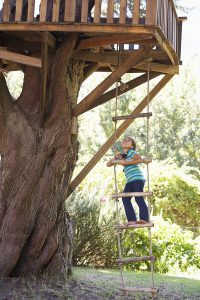Is It Really True That Trespassers Can Sue You?
 Michael Babboni
Personal Injury
There’s the old saying that “a man’s home is his castle,” and in a legal sense, the state of Florida recognizes a homeowner’s “sovereign rights” when it comes to their own home, and their ability to protect it. As to be expected, while it may normally be a crime in America to pull out a firearm and shoot someone else, things become very different with a home invader attempting theft or something worse in a person’s home.
Michael Babboni
Personal Injury
There’s the old saying that “a man’s home is his castle,” and in a legal sense, the state of Florida recognizes a homeowner’s “sovereign rights” when it comes to their own home, and their ability to protect it. As to be expected, while it may normally be a crime in America to pull out a firearm and shoot someone else, things become very different with a home invader attempting theft or something worse in a person’s home.However, while different rules apply when it comes to the uninvited entering your property, there are limits to just how far you can go to defend yourself and your land. In some rare instances, a homeowner may find him or herself on the receiving end of a lawsuit depending on the circumstances.
The Attractive Nuisance Law
The first and most common instance of a trespasser being able to sue a property owner is when it comes to children, and an aspect of Florida law known as “attractive nuisance.” This means that if you have some aspect or fixture on your property that may naturally attractive to children, such as a swimming pool or treehouse, there’s an understanding that children will not obey the law. In some cases, children may simply not be aware of any law that says they can’t use the treehouse or swimming pool they saw in someone else’s yard.
However, if children should injure themselves on some aspect of your property that you knew would be attractive to children, the parents of the injured children may be able to take you to court. Homeowners that have a known attractive nuisance on their property are legally required to take some steps to deny access. Typical measures are fences, signs and other barriers.
Deliberately Harming Trespassers
In most other instances, if a trespasser comes to your home and sustains an injury, you are in no way legally responsible. However, if you become aware of trespassers regularly entering your property and you take steps to deal with them that may intentionally result in harm, this is liable to make you vulnerable to a personal injury lawsuit.
For example, going to the trouble of purchasing an extremely aggressive attack dog, then posting no warnings about the dog, in the hopes that it will attack , maim or even kill a trespasser is likely to result in a lawsuit. This is especially true if the dog should attack and kill a child.
Setting up booby traps would also lead to a lawsuit. Tripwires, pongee pits, and other traps designed around the application of deadly force are not an acceptable means of dealing with trespassers. A homeowner only enjoys a certain amount of legal immunity from harming trespassers if it is clear that the property owner could not possibly know—or compensate for—that trespasser getting injured on some aspect of their property, such as falling out of the tree used to sneak in.
However, once a trespasser is suffering from a gunshot wound inflicted when they opened the door on the garden shed you booby trapped to catch them, that’s a whole different story. And it’s one where you, the homeowner, may end up paying for it in court.
